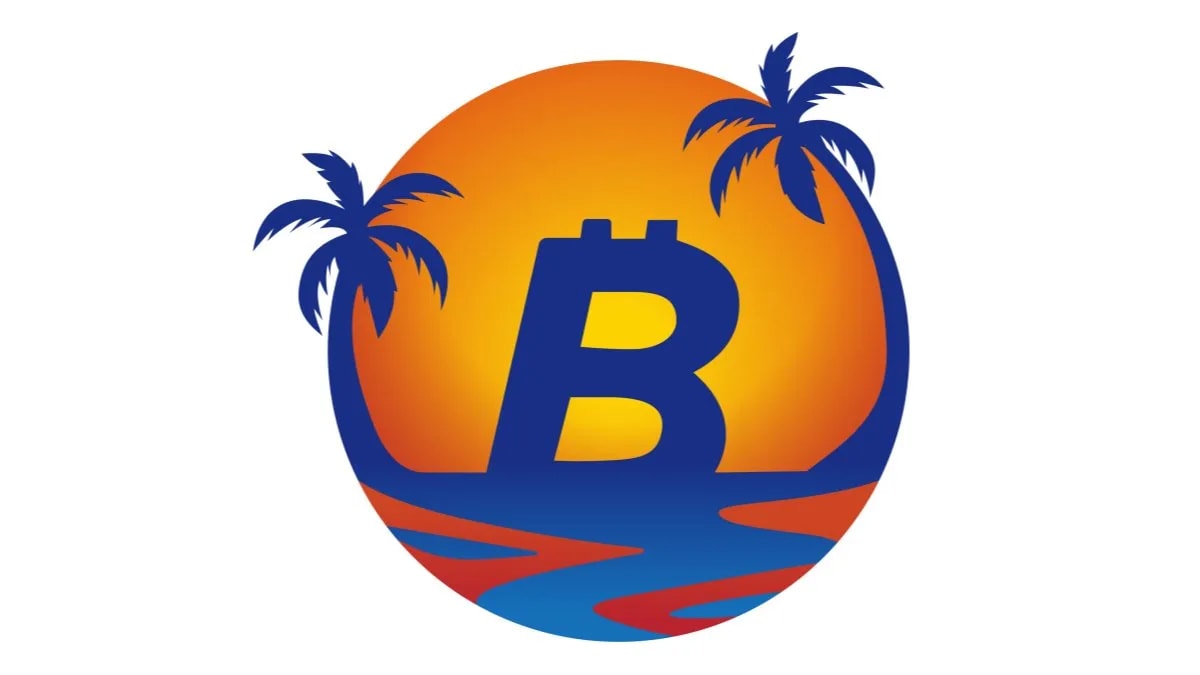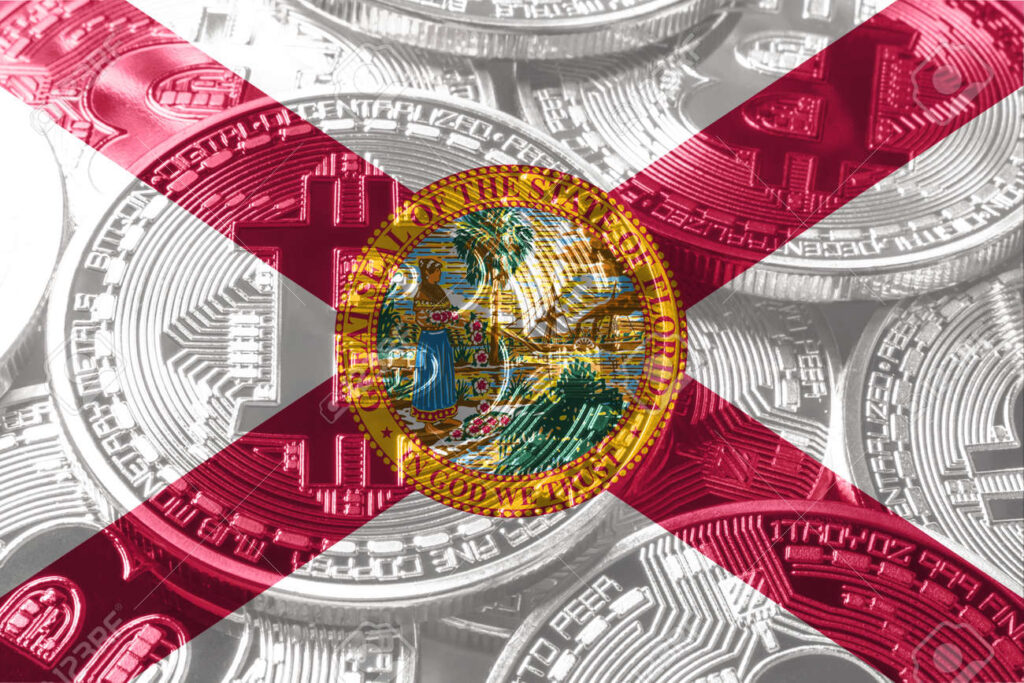The Best Tips for Investing in Bitcoin in Florida
Looking to invest in Bitcoin in Florida? This guide covers what you need to know about local regulations, choosing the right exchange, and making secure investments. Learn the essentials of investing in Bitcoin in Florida to confidently navigate Bitcoin investment in the Sunshine State.
Key Takeaways
- Florida’s pro-business environment and lack of state income tax create an attractive landscape for Bitcoin investors, but compliance with federal and state regulations is essential.
- Investors should choose reputable exchanges for buying Bitcoin, utilize secure funding methods, and implement strong security practices like using hardware wallets to protect their investments.
- Understanding the tax implications of Bitcoin transactions, including federal capital gains tax and potential sales tax on purchases, is crucial for effective investment management in Florida.
Legal Status of Bitcoin in Florida

Florida offers a pro-business environment for buying and selling Bitcoin, making it an attractive state for cryptocurrency enthusiasts.
However, grasping the legal intricacies of law at both federal and state levels is crucial for navigating this dynamic landscape.
Federal government oversight
The federal government currently lacks a comprehensive framework governing the regulation of digital assets in the U.S. This absence of uniform regulation means that changes in state or federal regulations can significantly impact the legality and operational functions of cryptocurrency exchanges. Therefore, investors must stay updated on evolving federal regulations to ensure compliance and avoid legal pitfalls.
Opening an account on a cryptocurrency exchange usually necessitates personal identification to comply with Know Your Customer (KYC) regulations. Federal agencies enforce these safety regulations to prevent illegal activities such as money laundering and fraud, underscoring the need to adhere to these requirements.
State-specific regulations
Cryptocurrency in Florida is generally not heavily regulated, providing a flexible environment for investors. House Bill 1379 defines cryptocurrencies and prohibits the laundering of virtual currency, aiming to provide clarity within the legal framework. Anyone looking to sell Bitcoin must obtain a Money Services license and comply with an anti-money laundering program.
Interestingly, Florida does not impose a state income tax on individuals, which is advantageous for crypto investors. As Florida aims to establish itself as a leader in Bitcoin, blockchain, and emerging technologies, it is crucial for investors to comply with anti-money laundering regulations to foster a secure trading environment.
How to Start Investing in Bitcoin in Florida

Investing in Bitcoin in Florida involves several key steps: choosing a reputable exchange, setting up an account, and funding it to buy bitcoin.
Following these steps will help you confidently begin your Bitcoin investment journey in the Sunshine State.
Choosing a reputable exchange
Florida residents have access to several popular exchanges, including Kraken, Coinbase, Bitstamp, Gemini, and Binance. Kraken offers a variety of cryptocurrencies and an easy-to-use interface, making it suitable for both beginners and seasoned investors.
Gemini is known for its clean interface and low trading fees, with a promotional offer of $20 worth of free Bitcoin for new users who trade $100 or more within 30 days. Coinbase lists over 50 cryptocurrencies, though it charges a conversion fee ranging from 0.50% to 2.0% and additional transaction fees.
Bitstamp supports 45 cryptocurrencies and offers multiple deposit methods, making it accessible for various users. These exchanges provide robust platforms for buying and selling crypto, ensuring a smooth trading experience.
Setting up your account
Setting up an account on a cryptocurrency exchange generally requires providing personal information and undergoing identity verification. This process ensures regulatory compliance and enhances investment security. Exchanges like eToro and Coinbase offer entry bonuses for new users making their first purchase, adding an extra incentive to begin.
Bitcoin ATMs provide a quick way to acquire cryptocurrencies with minimal verification, while platforms like LocalBitcoins enable users to set up accounts for peer-to-peer transactions. These options provide flexibility in how you choose to buy crypto and enter the crypto market.
Funding your account
Funding methods for cryptocurrency accounts vary and may include bank links, wire transfer, and debit or credit cards, each with different availability times. Wire transfers allow users to transfer funds directly from their bank account to the exchange, enabling larger transactions. Credit cards can typically be used for instant transactions, though they may incur higher fees depending on the exchange policies.
Selecting the right funding method depends on availability, fees, and the need for instant fund access. Considering these elements will help you choose the most suitable option for your needs.
Safe Practices for Buying Bitcoin
Implementing robust security practices is essential to protect your Bitcoin investments from cyber threats. This includes using two-factor authentication and hardware wallets to enhance security and minimize risks.
Anti money laundering program compliance
Adhering to anti-money laundering (AML) regulations ensures that cryptocurrency transactions do not facilitate illegal activities such as money laundering and fraud. Choosing exchanges that comply with AML regulations helps mitigate risks associated with scams and illegal operations.
Using digital wallets
Digital wallets, essential for securely storing Bitcoin, come in various types, including hot and cold wallets. Hot wallets provide ease of access, while cold wallets offer enhanced security by keeping assets offline and less vulnerable to hacking.
Investors should use hardware wallets for their enhanced security features, protecting assets from online threats. Cold storage significantly reduces the risk of theft, making it a preferred choice for long-term storage.
Avoiding fraud
Avoiding fraud is critical in the cryptocurrency market. Common signs of scams include offers that seem too good to be true and requests for personal information through unsolicited messages. Scammers often use social media to conduct phishing attacks, so it is crucial to verify any communication before clicking on links.
Thoroughly researching cryptocurrency companies before crypto transactions helps avoid falling victim to scams. Staying vigilant and informed helps investors protect themselves from fraudulent activities.
Tax Implications for Bitcoin Investors in Florida

Bitcoin transactions are considered taxable events under IRS regulations, requiring Florida residents to understand both federal and state tax guidelines.
Federal income tax on crypto earnings
Earnings from cryptocurrency transactions are subject to federal income tax, even though Florida does not impose a state income tax on Bitcoin profits. The IRS classifies cryptocurrency as property subject to capital gains tax, so investors must understand their federal tax responsibilities.
Florida residents must be aware of federal tax implications when profiting from cryptocurrency transactions, influencing investment management.
Capital gains tax
Bitcoin is treated as property, leading to capital gains tax implications when sold. Profits from selling Bitcoin may be classified as short-term or long-term capital gains, affecting tax rates. Short-term capital gains, for assets held less than a year, are taxed according to ordinary income tax rates, while long-term gains enjoy a reduced tax rate.
The IRS requires Bitcoin transactions to be reported using Form 8949 for capital gains and losses. Understanding these tax obligations is key to managing Bitcoin investments effectively.
Sales and use tax
Sales and use tax can apply to Bitcoin purchases of tangible goods, depending on the nature of the transaction. Florida imposes sales tax when cryptocurrency is exchanged for tangible personal items.
Bitcoin Use Cases in Florida

Bitcoin’s versatility extends beyond investment, with increasing acceptance in various industries across Florida. From everyday purchases to significant investments, Bitcoin offers numerous opportunities for Florida residents.
Everyday purchases
Popular chains and local businesses in Florida are increasingly accepting Bitcoin as a payment method, facilitating transactions in retail and food services. This growing acceptance underscores Bitcoin’s practical utility in everyday life.
Investment opportunities
Florida provides diverse investment opportunities for Bitcoin holders, including real estate purchases and investing in local startups. These opportunities underscore Bitcoin’s potential to significantly impact the state’s economy.
Risks and Considerations
Investing in Bitcoin carries inherent risks due to its speculative nature and volatile market performance. Recognizing these risks is vital for making informed investment decisions.
Market volatility
The cryptocurrency market is characterized by significant price swings, which can result in rapid financial losses. The prices of Bitcoin can fluctuate dramatically in a short period, posing substantial investment risks. These fluctuations mean that investors must be prepared for the possibility of both significant gains and losses, highlighting the importance of risk management strategies.
Regulatory changes
The regulatory environment for cryptocurrencies is constantly evolving, introducing legal uncertainties that can impact investment value. Knowing the regulatory landscape is crucial for making informed decisions about Bitcoin investments in Florida.
Security risks
Investing in cryptocurrencies stored in online wallets lacks the same protections as traditional bank accounts. Implementing secure practices, like protecting passwords and being cautious with links, is essential to prevent scams and theft.
Future of Bitcoin in Florida

Experts predict that Bitcoin will become more integrated into Florida’s economy as regulatory clarity improves. After the recovery from the FTX scandal, Bitcoin’s value has surged, indicating a positive future outlook.
Adoption rates
Bitcoin adoption rates in Florida could approach 16% by early 2023, reflecting growing acceptance among residents. This trend is part of a broader national movement, with approximately 77% of cryptocurrency holders in the U.S. possessing Bitcoin.
The increasing adoption rates highlight the expanding role of Bitcoin in the financial lives of Florida residents.
Technological advancements
Technological advancements play a crucial role in determining Bitcoin’s operational capabilities and mainstream acceptance. Innovations in blockchain technology, such as scalability and security improvements, hold the potential to significantly boost Bitcoin’s role in Florida’s economy. These technological strides can resolve existing issues, making Bitcoin more efficient and secure.
Enhancements in transaction speed through upgrades like the Lightning Network are vital for improving Bitcoin’s practicality. As these advancements continue, Bitcoin’s role within Florida’s economy is expected to evolve, leading to increased adoption and integration into financial systems.
Summary
Bitcoin’s journey in Florida is marked by a favorable legal landscape, a growing number of investment opportunities, and increasing acceptance in everyday transactions. By understanding the federal and state regulations, setting up and funding your account, and following safe practices, you can navigate the Bitcoin market with confidence. The tax implications, while complex, are manageable with the right knowledge, and the diverse use cases for Bitcoin in Florida offer exciting possibilities.
As we look to the future, the adoption rates and technological advancements suggest a promising outlook for Bitcoin in the Sunshine State. Staying informed and adapting to changes in the market and regulatory environment will be key to leveraging the full potential of Bitcoin. Embrace the opportunities and challenges ahead, and let your Bitcoin journey in Florida be a successful one.
Frequently Asked Questions
Is Bitcoin legal in Florida?
Yes, Bitcoin is legal in Florida, and the state fosters a favorable environment for its transactions, though it is crucial to be aware of relevant federal and state regulations.
What are the tax implications of investing in Bitcoin in Florida?
Investing in Bitcoin in Florida does not incur state income tax on profits, but you are still subject to federal income tax and capital gains tax on your transactions. Ensure you comply with IRS regulations regarding taxable events.
How can I start investing in Bitcoin in Florida?
To start investing in Bitcoin in Florida, select a reputable exchange, create an account with your personal details, and fund it using bank links, wire transfers, or credit/debit cards. This process ensures a secure and compliant entry into cryptocurrency investing.
What safety practices should I follow when buying Bitcoin?
To ensure your safety when buying Bitcoin, implement robust security practices like two-factor authentication and using hardware wallets, while remaining vigilant against phishing attempts. Conduct thorough research to avoid potential fraud and comply with anti-money laundering regulations.
What are the future prospects for Bitcoin in Florida?
The future prospects for Bitcoin in Florida are bright, driven by rising adoption and evolving regulations that enhance its integration into the local economy. Continued technological advancements also contribute to its growing practicality and security.

